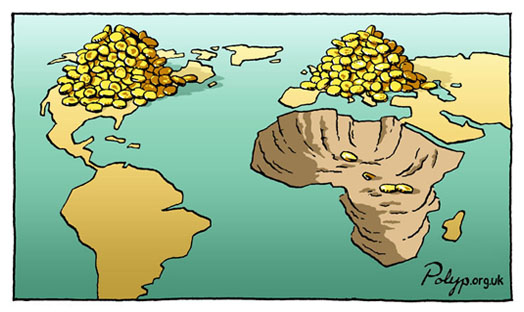For generations, Africa’s abundant natural resources have often been seen as a blessing. However, the exploitation of these resources has also brought challenges, including the so-called “resource curse,” which can lead to economic instability, inequality, and conflict. Effective minerals trade policies are crucial for mitigating these risks and harnessing the full potential of Africa’s resource wealth.
The Resource Curse and Its Impacts
The resource curse refers to the paradoxical phenomenon where countries with abundant natural resources often experience slower economic growth, higher poverty rates, and greater political instability compared to nations with fewer resources.
One of the reasons for this is the “Dutch disease” effect, which occurs when the increased revenue from resource exports leads to an appreciation of the local currency. This makes other sectors of the economy, such as manufacturing and agriculture, less competitive in global markets, leading to job losses and economic stagnation.
Furthermore, resource wealth can foster corruption and conflict. When revenue from resources is concentrated in the hands of a few individuals or groups, it can create incentives for corruption and diversion of funds away from public services. Additionally, competition over natural resources can exacerbate existing tensions and conflicts within countries and regions.
The Role of Minerals Trade Policies
Minerals trade policies play a crucial role in mitigating the risks of the resource curse and harnessing the benefits of natural resource wealth. Effective trade policies can help to:
- Promote economic diversification: By encouraging the development of non-resource sectors, trade policies can reduce dependence on natural resource exports and mitigate the effects of the Dutch disease.
- Increase revenue transparency: By requiring the disclosure of payments and contracts between governments and mining companies, trade policies can help to reduce corruption and increase accountability.
- Promote sustainable development: By incorporating environmental and social safeguards into trade agreements, trade policies can help to ensure that resource extraction does not harm the environment or promote human rights violations.
Tips for Effective Minerals Trade Policies
Based on experience and research, here are some tips for developing and implementing effective minerals trade policies in Africa:
- Ensure transparency and accountability: Establish robust systems for disclosing payments and contracts, and empower independent agencies to monitor compliance.
- Promote value addition: Encourage the development of domestic industries that process and refine minerals, creating higher-value jobs and increasing economic benefits.
- Invest in sustainable practices: Incorporate environmental and social safeguards into trade agreements, and provide incentives for mining companies to adopt sustainable practices.
- Support diversification: Encourage the development of non-resource sectors by providing incentives for investment in these industries and reducing barriers to entry.
Conclusion
Africa’s abundant mineral resources have the potential to transform the continent’s economic and social development. However, to avoid the resource curse, it is crucial to implement effective trade policies that promote economic diversification, increase revenue transparency, and promote sustainable development.
By harnessing the benefits of minerals trade while mitigating the risks, Africa can unlock the full potential of its natural wealth and create a more prosperous and equitable future for its citizens.
FAQs
- Q: What is the resource curse?
- A: The resource curse is a paradoxical phenomenon where countries with abundant natural resources often experience slower economic growth, higher poverty rates, and greater political instability compared to nations with fewer resources.
- Q: What are the causes of the resource curse?
- A: The causes of the resource curse include the Dutch disease effect, corruption, and conflict.
- Q: What is the role of minerals trade policies?
- A: Minerals trade policies play a crucial role in mitigating the risks of the resource curse and harnessing the benefits of natural resource wealth. Effective trade policies can promote economic diversification, increase revenue transparency, and promote sustainable development.
- Q: What are some tips for effective minerals trade policies?
- A: Tips for effective minerals trade policies include ensuring transparency and accountability, promoting value addition, investing in sustainable practices, and supporting diversification.
 Africa’s Resource Curse and the Importance of Trade Policies
Africa’s Resource Curse and the Importance of Trade Policies

Image – elexacademicbookstore.co.za
Africa’s Resource Curse and the Importance of Trade Policies

Image – elexacademicbookstore.co.za
Image: sites.google.com
Africa Resources Curse And Minerals Trade Policy Pdf






